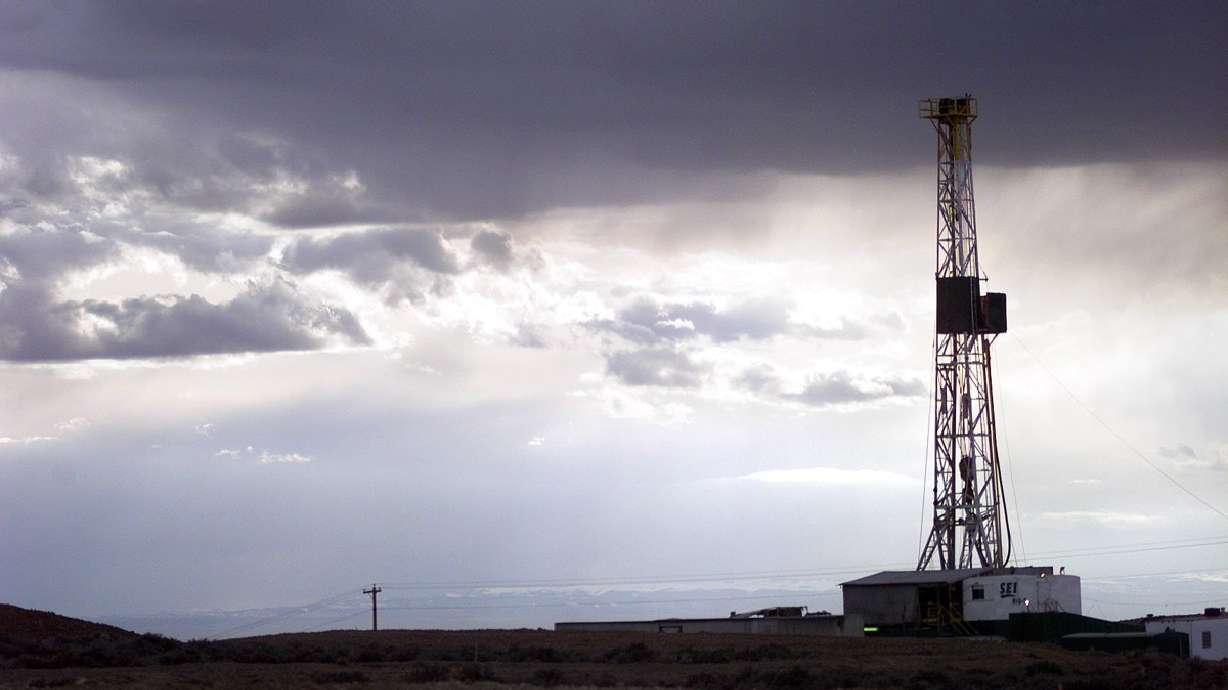Estimated read time: 4-5 minutes
This archived news story is available only for your personal, non-commercial use. Information in the story may be outdated or superseded by additional information. Reading or replaying the story in its archived form does not constitute a republication of the story.
SALT LAKE CITY — Utah is joining forces with the Ute Tribe and a trio of western Colorado counties in a newly formed advocacy group to tap into the global export market for liquified natural gas.
If successful, the effort could deliver nearly $93 billion for the U.S. economy and help transition Asian countries off coal in favor of the cleaner, less emission producing fuel.
"This is really a win-win for rural economies and the global environment," said Laura Nelson, executive director of the Governor's Office of Energy Development and Gov. Gary Herbert's energy adviser.
The Western States and Tribal Nations is the new advocacy group that is pushing the conversation around energy production and more pipelines and its benefit to the region, nation and other countries.
Specifically, it is emphasizing the need for the Jordan Cove LNG export terminal at Coos Bay, Oregon, to serve the Pacific Rim and export the product from the West Coast.
Japan, for example, is the world's largest importer of LNG, which is a liquified version of natural gas consisting mostly of methane. When combusted, it produces negligible amounts of sulfur, mercury and particulates and sulfur dioxide.
"One of the things we hope to do is to make the case that if you see global climate change as the No. 1 global issue then the fastest way to address that is to displace dirty coal in countries that are using it at an exponential pace," said Andrew Browning, chief operating officer of the Consumer Energy Alliance, an organization that is the leading consumer advocate for energy.
"We hope to depoliticize it," Browning added, pointing to benefits for rural economies, tribal sovereignty and environmental benefits for Asian countries.
"We know the demand is growing," Nelson said, but pointed to current export constraints faced in the western United States.
The Uinta Basin in Utah and Piceance Basin in Colorado are rich in oil and gas deposits.
The Ute Tribe in Utah leases 400,000 acres for oil and gas development with 2,059 wells. In terms of natural gas, those wells produce 900 million cubic feet per day, but because of the isolated nature of the Uinta Basin, the tribes' products have to be sold in Salt Lake City at 10 to 15 cents below market rates.
The United States, too, has moved into the No. 1 spot in the world for the production of natural gas and has at least 90 years in reserve, according to a study for the new coalition.
Related story:
The study, compiled by the Colorado Mesa University's Unconventional Energy Center, was commissioned by the Colorado Energy Office, the Utah Governor's Office of Energy Development and the Ute Indian Tribe. Those stakeholders have recently been joined by the Colorado counties of Garfield, Mesa Moffat and Rio Blanco.
If eastern Utah and western Colorado can tap into the LNG export market specifically targeting Asian countries, both Nelson and Browning said rural economies would see huge benefits.
Utah, the report estimates, could see $4 billion in revenue from LNG exports and add 15,000 jobs, while Colorado would see an estimated $6 billion and add 38,000 jobs.
There was significant pipeline capacity added between 2007 and 2011 in the Rocky Mountain West, and the Jordan Cove export terminal would simply require the construction of one 230-mile "Pacific Connector" to marry the existing Ruby Pipeline in Oregon to the Rocky Mountain supply basins, according the report.
The Jordan Cove export terminal has a pending application before the Federal Energy Regulatory Commission.
Browning said he realizes the conversations around development of fossil fuels stokes controversy among some groups.
"The dialogue on it has grown a little bit more shrill in the past years," he said, but noted some real benefits the report points out over LNG exports, such as:
• Utilization of natural gas can work in tandem with renewables because it can ramp up or ramp down to accommodate intermittent energy sources.
• Exposure to outdoor atmospheric pollution is the fourth leading cause of death for Chinese citizens.
• LNG exports have the potential to greatly reduce energy poverty for the 992 million people globally, as of 2017, who had no access to electricity.
• Nearly 3 billion people across the globe cook or heat their homes with open fires or stoves fueled by kerosene, animal dung or crop waste.
"We want to bring these issues to the forefront and have a regional and national dialogue," Browning said.
Some groups believe fossil fuel development should be phased out.
"While we understand the argument that natural gas may be a short-term necessity as a baseload power source during the transition to renewable energy and storage, we do not support the development of new fossil fuel infrastructure,: said Dr. Scott Williams, executive director of the Healthy Environment Alliance of Utah, known as HEAL Utah.











